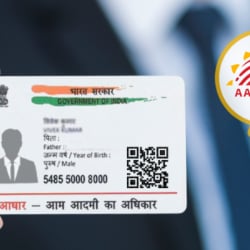Aadhaar Card: Essential for Every Indian Citizen

Introduction
The Aadhaar Card, a 12-digit unique identification number issued by the Unique Identification Authority of India (UIDAI), has become an essential document for Indian residents. Launched in 2009, it serves as a proof of identity and address. In an era where digital transactions and e-governance are on the rise, the Aadhaar Card plays a crucial role in simplifying access to services and ensuring security against identity theft.
Importance of Aadhaar Card
The Aadhaar Card has transformed the landscape of identity verification in India. It is vital for accessing government subsidies, opening bank accounts, and obtaining mobile connections. Recent policy decisions have mandated the use of Aadhaar for various services, making it an indispensable document for citizens. In 2022, the Indian government reported that over 1.3 billion Aadhaar numbers have been issued, showcasing its widespread adoption. Moreover, the integration of Aadhaar with services like Direct Benefit Transfers (DBT) has reduced leakages and ensured that welfare schemes reach the intended beneficiaries efficiently.
Recent Developments
In recent months, the government has introduced several measures to enhance the security and usage of Aadhaar. In August 2023, amendments to the Aadhaar Act were proposed to allow for greater flexibility in how citizens can use their Aadhaar numbers, promoting easier access while ensuring data privacy. Additionally, biometric authentication through Aadhaar is now being extended to various public and private sector services, further solidifying its role as a primary form of identity verification.
Challenges and Concerns
Despite its advantages, the Aadhaar system has faced criticism concerning privacy and data protection. Concerns about the storage and management of sensitive data remain at the forefront of discussions. The Supreme Court of India has emphasized the necessity of establishing clear privacy laws, which is crucial as the government continues to strengthen the Aadhaar framework.
Conclusion
The Aadhaar Card stands out as a pioneering initiative aimed at providing a strong digital identity for Indian citizens. Its integration into various services underlines its importance in the modern economy and governance. As the government continues to adapt and enhance the Aadhaar framework, it is expected that citizens will experience improved access to services while addressing privacy concerns will be essential for maintaining trust in this digital identity system. The coming years will likely see further innovations surrounding Aadhaar, making it a cornerstone of India’s digital infrastructure.







